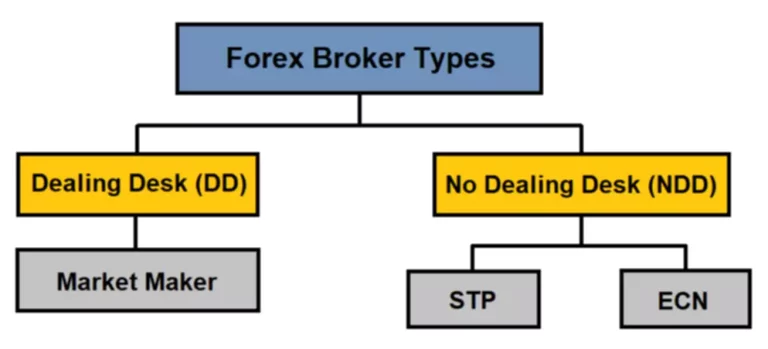The cryptocurrency panorama continues to evolve rapidly, making it essential for members to stay abreast of the latest developments, notably regulatory ones. The classification of a crypto asset can directly influence its market performance, the legality of its distribution, and even its overall Commodity vs Security Why It Matters For Crypto adoption. As buyers or traders, understanding these dynamics can provide a competitive edge. Understanding the differences between securities and commodities is not just tutorial – it carries real-world implications, especially within the intricate interplay of the quickly evolving world of cryptocurrencies. These classifications determine how these property are regulated, how they are often traded, and the potential dangers and rewards they offer to traders.
Is Ethereum A Commodity Or Security?

They are the driving pressure of global capital markets, providing corporations the means to raise capital and giving buyers alternatives to earn returns. But their classification and regulatory framework have important implications, particularly in the realm of cryptocurrencies. As we dig deeper into this advanced Cryptocurrency world, these distinctions turn into essential. Bitcoin’s classification as a non-security stems from its elementary traits as an anonymous and open-source protocol. Any cryptocurrency that meets the criteria of being a security, as per the Howey Test, falls under the regulation of the SEC.
Is Crypto A Safety Or Commodity?

If a cryptocurrency is classified as a safety, it falls under the regulatory purview of the Securities and Exchange Commission (SEC). This would imply the cryptocurrency must adhere to stringent disclosure and registration requirements, just like traditional securities like shares or bonds. Initial coin choices (ICOs), as an example, must be registered with the SEC, and issuers would wish to disclose complete details about the company and the token sale. This affects issuer and change licenses, as well as the legal sale and trading of those assets. The SEC sees cryptocurrencies as securities, necessitating regulatory compliance, while the CFTC classifies them as commodities, focusing on market equity. This difference impacts regulatory frameworks and efforts are ongoing to make clear the oversight of each businesses.
Why Does The Classification Of Crypto Matter?
Commodity Futures Trading Commission (CFTC), consider cryptocurrencies as commodities. The chance of various cryptocurrencies facing varied regulations complicates the regulatory panorama. Discerning whether or not a crypto token falls beneath the bracket of a commodity or a security is crucial for business individuals to confidently navigate regulatory complexities and for traders to make insightful selections.
Understanding the intricate world of financial assets, particularly the roles and impacts of securities and commodities, has by no means been more vital than within the age of cryptocurrencies. The categorization of those digital belongings has turn into a touchstone issue, influencing everything from regulation to market dynamics and even innovation potential inside the crypto trade. The SEC does not typically “ban” cryptocurrencies outright, however quite regulates certain belongings it deems to be securities under its jurisdiction. At the core of this classification, the Howey Test considers whether or not an asset involves an investment of money in a common enterprise with an affordable expectation of revenue derived from the efforts of others.
Our writing and editorial employees are a team of experts holding superior monetary designations and have written for many major monetary media publications. Our work has been instantly cited by organizations including Entrepreneur, Business Insider, Investopedia, Forbes, CNBC, and tons of others. We follow strict moral journalism practices, which incorporates presenting unbiased information and citing dependable, attributed resources.
As we’ve seen, classifying cryptocurrencies as both securities or commodities carries important implications. Securities, representing an funding with expectations of revenue, invite stringent regulatory scrutiny but also provide the benefit of investor safety and market stability. Commodities, however, while usually subject to much less regulation, offer the promise of innovation and dynamism on the risk of fewer safeguards for market members. The classification of cryptocurrencies as either securities or commodities carries significant implications for regulatory oversight and industry practices. This ongoing debate is pivotal as a result of it impacts how these assets are regulated, marketed, and managed inside financial systems. Will their ever be a real reply to the query “is crypto a security or commodity”?
From a regulatory standpoint, these two asset courses fall beneath totally different jurisdictions within the United States. Securities come under the purview of the Securities and Exchange Commission (SEC), whereas commodities are regulated by the Commodity Futures Trading Commission (CFTC). Classifying an asset as a safety or a commodity can have important implications, notably in emerging asset lessons like cryptocurrencies. Securities similar to shares often present earnings via dividends – a share of income distributed to investors.
Understanding commodities and their market dynamics is essential, not just for commodity traders and traders but also for anyone venturing into the complex world of cryptocurrencies. As we delve deeper into categorizing these digital belongings, the rules of commodities will become increasingly relevant. Despite being more than 15 years into the era of Bitcoin and the broader crypto business, the regulatory landscape remains largely unsettled. This regulatory ambiguity complicates efforts to steadiness innovation with essential protections for market participants.
This uncertainty underscores the challenges and complexities inherent in the crypto classification debate. Gary Gensler and different key monetary regulators have made it explicit that they contemplate Bitcoin to be a commodity, not a security. This view, while not common, has important implications for the regulation and buying and selling of Bitcoin.
However, unregistered offerings by crypto issuers may deprive investors of key data and protections, corresponding to entry to audited financial statements. Getting categorized as a commodity would probably make cryptocurrencies like Bitcoin be extra flippantly regulated. While some regulators have stated cryptocurrencies usually are not a safety, initial coin choices have been thought of similar to other capital-raising practices in the securities markets, like IPOs. The differentiation between commodities and securities could seem comparatively simple in phrases of traditional property like gold and oil or stocks and bonds. However, digital assets like cryptocurrencies have stretched the delineation between the 2 forms of property.
- 11 Financial could only transact enterprise in those states during which it is registered, or qualifies for an exemption or exclusion from registration requirements.
- Cryptocommodities are tokens that characterize an underlying or secured commodity on a blockchain.
- However, securities stretch past simply shares and bonds, encompassing a broad spectrum of economic devices.
- Michael obtained a Bachelor of Arts in literature from the University of Wisconsin-Madison and a grasp’s in linguistics from the Universidad de Antioquia in Medellin, Colombia.
- The classification of a cryptocurrency additionally influences its accessibility to traders.
Such a reform might considerably impact the oversight of digital asset markets, further complicating the crypto classification debate. In addition, there are some components of the cryptocurrency markets that seem to fall nearer consistent with the definition of a security. For instance, when blockchain or crypto-related firms raise capital by way of preliminary coin choices (ICOs), they issue digital cash that allow traders to take part within the crypto project and earn a share of its profits. Therefore, ICOs resemble the preliminary public choices (IPOs) that firms use to convey their stock onto the public markets, lending credence to the idea that they need to be equally regulated as securities.
Classifying a cryptocurrency as a safety or commodity impacts its regulatory treatment, market conduct, and investor perception. It determines the rules that issuers and merchants have to follow and influences the extent of institutional adoption and investor participation. As we continue to discover the ever-evolving crypto-asset landscape, the query of classification remains a key level of competition and intrigue.

It means they do not appear to be optimized primarily for gain however for holding stable worth. Ultimately, the debate on whether or not crypto is a commodity continues to form the regulatory panorama and market dynamics, influencing the longer term trajectory of these digital assets. The line drawn between commodities trading and securities laws has a significant bearing on the regulatory strategy towards cryptocurrencies. Securities are investments like shares, bonds, and different pursuits in firms, while commodities involve the purchase of pure resources or agricultural products prematurely of supply. SEC registration offers protections for investors, like asset custody standards and conduct necessities, which may be absent in the decentralized nature of crypto exchanges.
Crypto asset buying and selling has up to now used blockchain know-how which permits the transaction course of to be unfold throughout the community and never centralized in a government. This means that with this know-how, third parties corresponding to supervisory establishments usually are not directly involved in each crypto asset transaction. The last set of questions revolve round how the cryptoasset got here into existence. If it was airdropped or got here into existence one other means, then there’s less danger. If there was a public sale in the united states, then it’s riskier than a private sale.
Start your own high-profit forex brokerage in just a few days or scale your existing business with the best-in-class forex software XCritical https://www.xcritical.in/. Get the perfect Turnkey Forex Solutions that will provide your business with efficiency, stability, and maximum profit.

